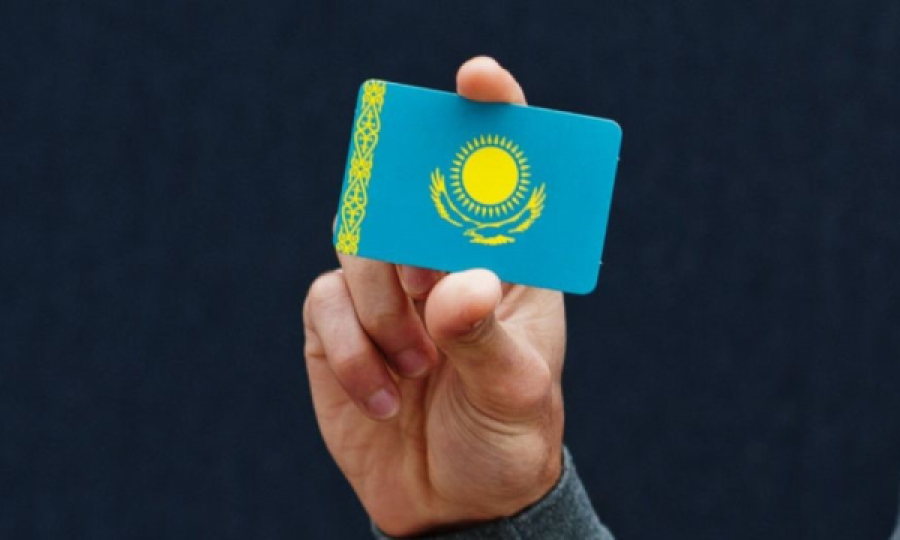ASTANA – One of the key objectives of the 2023-2027 Migration Policy Concept is to attract highly qualified specialists to Kazakhstan, including entrepreneurs and potential investors, Prime Minister Alikhan Smailov said at an Aug. 8 government meeting, reported the Prime Minister’s press service.

Photo credit: ptrk.kz.
Business migration
According to Tamara Duissenova, Kazakh Deputy Prime Minister and Minister of Labor and Social Protection of the Population, within business-related immigration, which aims to expand Kazakhstan’s investment attractiveness, 76 foreign nationals received investor visas since the start of 2023. They were exempt from obtaining permits to hire foreign employees.
The government simplified the procedure for issuing an individual identification number and an electronic digital signature in foreign institutions for potential investors on the one application-based principle. These measures aim to lower the investment visa threshold for businesspeople, said Duissenova.
Having approved the procedure for issuing Ata Zholy (Ancestors’ Path), a card that provides a 10-year residence permit for ethnic Kazakhs, the country is introducing a new long-term investor visa. The Otandastar Foundation has formed a preliminary list of Ata Zholy card holders from 50 ethnic Kazakhs with successful businesses abroad.
Qualified personnel
The concept’s other direction focuses on attracting qualified foreign personnel. From July 1, foreigners of in-demand professions can apply for a residence permit under the simplified procedure. According to the recently adopted new rules, one permit with the right to work will be valid in several regions.
“A quota for 22,000 foreign specialists was approved this year. About 10,000 employers issued vouchers to specialists per their needs,” Duissenova informed.
The main term for issuing permits is the absence of such specialists in the country’s labor market, while the share of Kazakh specialists in the workplace must not be less than 95%.
As part of ethnic immigration, embassies and consulates started accepting applications for the ‘Kandas’ (ethnic Kazakh) status through a new mechanism of a single service delivery point.
The new settlement process is now carried out in four categories. Employers from all regions who encounter labor shortages may request business owners. If the parents or children of a ‘Kandas’ arrive earlier, acquire citizenship, and practice a certain profession, they can move to reunite with the family where they live. The regions can identify potential development settlements and invite ethnic Kazakhs to strengthen the demographic process.
“The social package is provided only to those ‘Kandas’ who received referrals to the regions determined by the government,” Duissenova pointed out.
Labor rights
Another direction is the protection of the labor rights of Kazakh nationals working abroad, whose number exceeded 194,000 in the first quarter of this year, reported the Ministry of Foreign Affairs.
Additional measures have been taken for new agreements with Türkiye, the United Arab Emirates, the United Kingdom, and other countries to safeguard the labor rights of Kazakh citizens. Meanwhile, Kazakhstan’s inclusion in the Employment Permit System is being worked out to ensure the legal employment of Kazakhs in South Korea.
Educational migration
As part of educational immigration, President Kassym-Jomart Tokayev instructed to position Kazakhstan as a regional hub for academic mobility and attraction of leading scientists and specialists. With a mission to create industry-specific universities with modern campuses and scientific laboratories, six branches of foreign universities have been established at the country’s universities over the two years, Duissenova noted.
“The share of foreign students in the total number of students will increase to 4.4% this year,” she said.
Internal mobility
Another direction of the concept is stimulating internal mobility to equalize demographic imbalances between labor-surplus and labor-deficient regions.
More than 33,000 people will receive state support within the programs implemented this year, the Deputy Prime Minister said. A new certificate of economic mobility was introduced to give the right to financial assistance in a new place of 50% of the cost of housing but at most four million tenge (approximately $9,000).
“To date, 224 families have received the certificates. By the end of the year, it is planned to resettle 4,512 migrants and ‘Kandas’ to northern regions,” Duissenova noted.
Regarding work with refugees, Duissenova stated that as of July 1, there are 628 asylum seekers and 333 refugees in Kazakhstan. Measures have been worked out to ensure their social rights, employment, medical and social assistance.
According to her, the current geopolitical situation and the measures taken within the concept resulted in a positive migration balance for the first time in the past ten years.
Since the beginning of 2023, more than 160,000 people have participated in intra-country mobility, demonstrating stable internal migration flows. Metropolises are still centers of attraction for internal migrants, accounting for 40%.
“The actions taken will effectively reset the migration policy and get the maximum benefit from changes in the geopolitical situation,” Duissenova concluded.
